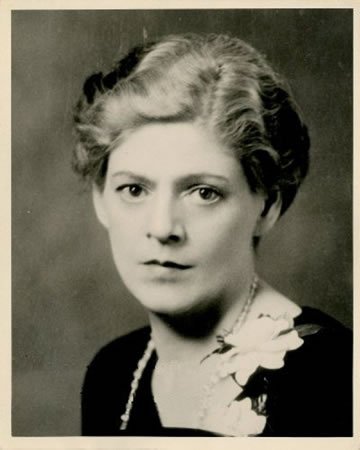Ethel Barrymore, born Ethel Mae Blythe on August 15, 1879, in Philadelphia, Pennsylvania, was destined for greatness in the world of entertainment. As a scion of the illustrious Barrymore acting dynasty, Ethel inherited a legacy of theatrical excellence that she not only upheld but also elevated to new heights during her illustrious career. Her contributions to both stage and screen made her a luminous icon in American entertainment history.
Early Life and Theater Roots:
Ethel Barrymore was the second child of Maurice Barrymore and Georgiana Drew, both renowned actors themselves. Growing up in a household immersed in the theater, Ethel’s destiny seemed preordained. Her debut on the stage occurred at the tender age of 15 in the play “The Imprudent Young Couple.” This marked the inception of a career that would span six decades and leave an indelible mark on American theater.
Ethel’s early years were marked by an insatiable appetite for learning the craft of acting. She studied under distinguished mentors and honed her skills in various productions. Her breakthrough came in 1901 when she starred in “Captain Jinks of the Horse Marines,” a role that showcased her versatility and earned her critical acclaim. Ethel’s stage presence and ability to convey a wide range of emotions established her as a rising star in the theatrical firmament.
The Barrymore Dynasty:
Ethel Barrymore was part of a theatrical dynasty that included her brothers Lionel and John, both celebrated actors in their own right. The Barrymores collectively became synonymous with the golden age of American theater, contributing significantly to its development and popularity. Ethel’s collaboration with her siblings in various productions became legendary, solidifying the Barrymore name as a hallmark of theatrical excellence.
Transition to Film:
In the early 20th century, as the film industry began to emerge, Ethel Barrymore successfully transitioned to the silver screen. Her film debut in “The Nightingale” (1914) marked the beginning of her cinematic journey. Ethel’s ability to seamlessly adapt her stage presence to the demands of the camera set her apart. Her performances in films such as “Rasputin and the Empress” (1932) and “None but the Lonely Heart” (1944) earned her acclaim and industry recognition.
Acclaim and Accolades:
Throughout her career, Ethel Barrymore garnered numerous accolades for her contributions to the arts. She received the Best Supporting Actress Academy Award for her role in “None but the Lonely Heart,” adding an Oscar to her already impressive collection of honors. Her achievements were not limited to the silver screen; Ethel continued to captivate audiences on Broadway, earning a Tony Award for her role in “The Corn is Green” (1941).
Legacy and Personal Life:
Ethel Barrymore’s legacy extends beyond her professional accomplishments. Known for her wit, intelligence, and magnetic charm, she became a beloved figure both in the entertainment industry and among the public. Despite facing personal challenges, including the loss of loved ones and health issues, Ethel maintained her resilience and dedication to her craft.
Ethel’s impact on American culture was further cemented by her literary contributions. She penned an autobiography, “Memories,” which provided insights into her life and the world of theater during her era. The book remains a valuable resource for those interested in the history of American entertainment.
Final Act:
Ethel Barrymore’s final curtain call came on June 18, 1959, when she passed away at the age of 79. Her death marked the end of an era in American entertainment, but her influence endured. Ethel’s contributions to both stage and screen left an indelible mark on the industry, inspiring generations of actors to come.
In retrospect, Ethel Barrymore’s life is a testament to the enduring power of talent, dedication, and the indomitable spirit of the performing arts. As a radiant star in the firmament of American theater and film, Ethel’s legacy continues to shine brightly, reminding us of the timeless magic of the stage and the silver screen.
